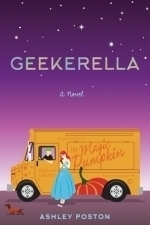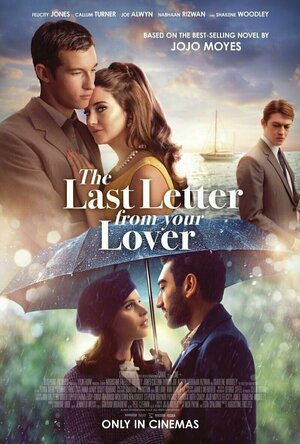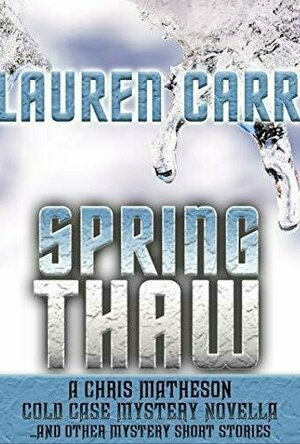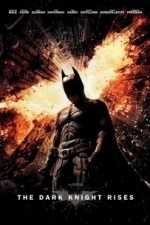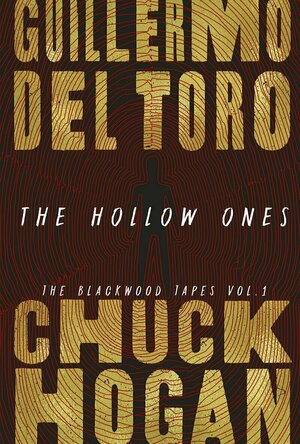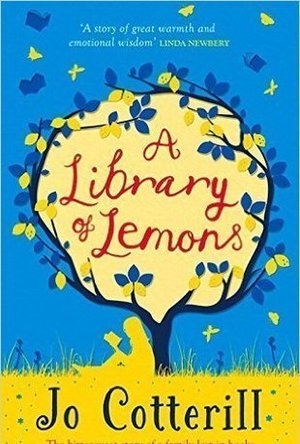Search
Search results
Ivana A. | Diary of Difference (1171 KP) rated Geekerella (Once Upon a Con #1) in Books
Nov 1, 2018
My review can also be found on my blog: www.diaryofdifference.com
When the typical Cinderella story meets a geeky girl, a comic con and an actor instead of a prince, you get Geekerella. A story unlike any other Cinderella like stories, full with wittiness, geekiness and style.
We have Elle, who is our Cinderella. Her father passed away and left her with her stepmom and her two stepsisters. Elle is also a vivid lover of Starfield, sci-fi series similar to Star Trek and Star Wars. She is also a blogger, where she writes all things Starfield.
On the other side, we have Darien, who is an actor and just got the main character role for the new remake of Starfield. While he deeply loves Starfield, he is not allowed to show those emotions and let everyone knows he is a fan, because it will ruin his reputation. And that is the sole reason why fans don’t like him – he is just another guy that goes for the money and ruins their favourite fan fiction (we have all been there though, haven’t we?).
When fate somehow connects Elle and Darien together, under unknown circumstances they start texting to each other, without revealing who they really are. And that is when everything changes.
A story about love and friendship, but most importantly – a story that teaches you to “Look to the stars. Aim. Ignite.” A story that reminds you to keep believing in who you are and why you are doing what you love. This is an amazing reminder to all of you – to be the people you want to be, because once you are comfortable with who you are and what you love to do – nothing can stop you in being great! And most importantly – HAPPY!
While there were bits and pieces that I couldn’t resist but to cringe on, such as the falling in love through texting, or not being able to say no to your step sisters, or being afraid to tell your fans that you are a fan, while they keep accusing you that you don’t care. (How could this ruin a reputation? It could only make it better)…
While there were things that bothered me, this story was still a great revolution to the Cinderella retelling. No other story has shown a girl to fight for what she loves as strongly as this, without the help of magic or a pumpkin – even though her best friend Sage was really the fairy in this situation.
Thank you to NetGalley and Quirk Books, for providing me with an ARC copy of the book.
If you haven’t read it already, please do! It is worth reading it, as it has a powerful message inside of it. I recommend it to all of you out there!
When the typical Cinderella story meets a geeky girl, a comic con and an actor instead of a prince, you get Geekerella. A story unlike any other Cinderella like stories, full with wittiness, geekiness and style.
We have Elle, who is our Cinderella. Her father passed away and left her with her stepmom and her two stepsisters. Elle is also a vivid lover of Starfield, sci-fi series similar to Star Trek and Star Wars. She is also a blogger, where she writes all things Starfield.
On the other side, we have Darien, who is an actor and just got the main character role for the new remake of Starfield. While he deeply loves Starfield, he is not allowed to show those emotions and let everyone knows he is a fan, because it will ruin his reputation. And that is the sole reason why fans don’t like him – he is just another guy that goes for the money and ruins their favourite fan fiction (we have all been there though, haven’t we?).
When fate somehow connects Elle and Darien together, under unknown circumstances they start texting to each other, without revealing who they really are. And that is when everything changes.
A story about love and friendship, but most importantly – a story that teaches you to “Look to the stars. Aim. Ignite.” A story that reminds you to keep believing in who you are and why you are doing what you love. This is an amazing reminder to all of you – to be the people you want to be, because once you are comfortable with who you are and what you love to do – nothing can stop you in being great! And most importantly – HAPPY!
While there were bits and pieces that I couldn’t resist but to cringe on, such as the falling in love through texting, or not being able to say no to your step sisters, or being afraid to tell your fans that you are a fan, while they keep accusing you that you don’t care. (How could this ruin a reputation? It could only make it better)…
While there were things that bothered me, this story was still a great revolution to the Cinderella retelling. No other story has shown a girl to fight for what she loves as strongly as this, without the help of magic or a pumpkin – even though her best friend Sage was really the fairy in this situation.
Thank you to NetGalley and Quirk Books, for providing me with an ARC copy of the book.
If you haven’t read it already, please do! It is worth reading it, as it has a powerful message inside of it. I recommend it to all of you out there!
Emma @ The Movies (1786 KP) rated The Last Letter from Your Lover (2021) in Movies
Sep 5, 2021
Having missed the Unlimited Screening of this I was having to endure constant enthusiasm of a certain moviegoer until I'd seen it, but even then it didn't quite stop.
When Ellie discovers a random love letter while searching the archives for assignment, it sets in motion a hunt for more letters. With each letter the mystery unfolds and Ellie's life changes with every heartfelt sentence.
This is based on a Jojo Moyes book (that as usual, I haven't read), and I believe that traditionally that means gut-wrenching feels?
A modern day love story that evolves around a love story of letters. As tales of romance go, this is a very compelling one. I understand that the film has been stripped back from the novel (as you'd expect), and from what I've heard about what's missing, it's probably done the film a favour by not getting bogged down in extra backstory.
Let's start at the beginning with Jennifer (played by Shailene Woodley). She's the perfect balance throughout the film, composed and demur, frantic and firey. And my god, I felt all of her emotions in every scene. Her performance was probably my favourite from the cast, especially when combined with Callum Turner as Anthony O'Hare.
The way the two of them interacted was compelling the whole way through, and the emotion felt so horribly real that I was bawling my eyes out. Turner's performance was understated but powerful... and it totally wrecked me.
Meanwhile, in the present, Ellie (Felicity Jones) and Rory (Nabhaan Rizwan) are discovering Jennifer and Anthony's hidden romance through letters uncovered in the archives where they work. These sections of the film gave me very strong vibes of Love Actually mixed with Last Christmas. On their own they were funny and cute moments, but I think the balance was just right. Any more of them and I'm not sure the film would have held quite the same appeal.
The historic scenes were beautiful, the settings, the costumes, absolutely stunning. It makes you nostalgic for a style that some of us have never even experienced.
As I said, I bawled my eyes out, but that wasn't how I felt all the way through. At the beginning of the film I was a little bored if I'm honest. I wasn't really getting along with what was happening, and I was a little annoyed that the first cut didn't clearly switch between past and present. But there was one point that had me sold, my heart was in my throat and the tears started... and I'm not convinced they stopped until the credits rolled.
Originally posted on: https://emmaatthemovies.blogspot.com/2021/09/the-last-letter-from-your-lover-movie.html
When Ellie discovers a random love letter while searching the archives for assignment, it sets in motion a hunt for more letters. With each letter the mystery unfolds and Ellie's life changes with every heartfelt sentence.
This is based on a Jojo Moyes book (that as usual, I haven't read), and I believe that traditionally that means gut-wrenching feels?
A modern day love story that evolves around a love story of letters. As tales of romance go, this is a very compelling one. I understand that the film has been stripped back from the novel (as you'd expect), and from what I've heard about what's missing, it's probably done the film a favour by not getting bogged down in extra backstory.
Let's start at the beginning with Jennifer (played by Shailene Woodley). She's the perfect balance throughout the film, composed and demur, frantic and firey. And my god, I felt all of her emotions in every scene. Her performance was probably my favourite from the cast, especially when combined with Callum Turner as Anthony O'Hare.
The way the two of them interacted was compelling the whole way through, and the emotion felt so horribly real that I was bawling my eyes out. Turner's performance was understated but powerful... and it totally wrecked me.
Meanwhile, in the present, Ellie (Felicity Jones) and Rory (Nabhaan Rizwan) are discovering Jennifer and Anthony's hidden romance through letters uncovered in the archives where they work. These sections of the film gave me very strong vibes of Love Actually mixed with Last Christmas. On their own they were funny and cute moments, but I think the balance was just right. Any more of them and I'm not sure the film would have held quite the same appeal.
The historic scenes were beautiful, the settings, the costumes, absolutely stunning. It makes you nostalgic for a style that some of us have never even experienced.
As I said, I bawled my eyes out, but that wasn't how I felt all the way through. At the beginning of the film I was a little bored if I'm honest. I wasn't really getting along with what was happening, and I was a little annoyed that the first cut didn't clearly switch between past and present. But there was one point that had me sold, my heart was in my throat and the tears started... and I'm not convinced they stopped until the credits rolled.
Originally posted on: https://emmaatthemovies.blogspot.com/2021/09/the-last-letter-from-your-lover-movie.html
Lindsay (1793 KP) rated Spring Thaw: A Chris Matheson Cold Case Mystery Novella and Other Mystery Short Stories in Books
Jan 11, 2026 (Updated Jan 11, 2026)
Spring Thaw:
A Chris Matheson Cold Case
We are introduced to Chris and his family when we get a premonition of what is going on six years earlier.
Who came into the church and started shooting up the church while trustees were in a meeting.
Was it a trustee or was it someone else? Was it Duance McCall? Why stick it to him? Why investigate him? Why does he have a mystery that was unsolved in the case of why he cut off his family and friends when the church split?
Chris got some information about what might be going on, but not much. Though we hear Kirk and what was going on around the time of the shooting.
Though we get more of Kelly's father's story. Why all of a sudden do we have new witnesses come about, and now a murder weapon?
A 6-year-old cold case seems to be reopened again, but why? Is someone covering for their own family member?
Lauren Carr can do it with short stories, too. She hooked me with this one as it was only just starting. I am only a few pages in.
Well, we get more information, and now we don't know who did it. Was bishop really the target? Lauren Carr put twists and turns even in the middle of the story. Who is lying and why?
Killing Bid:
A Mac Faraday Mystery Short
We are introduced to Mac and Artchie through Mac's perspective, primarily through his troubles with bag snatching.
We are also introduced to Ben and Catherine's Flemings, who are Archie's friends.
While shopping, they talked about Celeste Taylor and the Estate auction Mac was invited to.
When they get an auction or a lease, look at the jewelry left here. Archie and Catherine come up to respect their husbands' statement that all of Celeste Taylor's jewelry is fake.
Is this true or is it not? La Chat is mentioned in the book. Did he do it or not? Who is La Chat?
A Beauty to Die For:
A Lover In Crime Mystery Short
We meet up with Joshua and Cameron. It all starts with a 2 am phone call from his cousin Tad Macmillan.
This is the start of a series of secrets. But clarify one person's name for a dying person so she can have peace.
Who is covering up murders, but especially Rachel Burke? Who framed Billy and murdered him? But made it look like something else and cover it up?
There are twists and turns, and even more to unravel this mystery.
Cameron and Joshua seem ready to prove that the dying mother's son did not do it, but to catch the real ones? But who did we seem to have found another murder along the way?
A Chris Matheson Cold Case
We are introduced to Chris and his family when we get a premonition of what is going on six years earlier.
Who came into the church and started shooting up the church while trustees were in a meeting.
Was it a trustee or was it someone else? Was it Duance McCall? Why stick it to him? Why investigate him? Why does he have a mystery that was unsolved in the case of why he cut off his family and friends when the church split?
Chris got some information about what might be going on, but not much. Though we hear Kirk and what was going on around the time of the shooting.
Though we get more of Kelly's father's story. Why all of a sudden do we have new witnesses come about, and now a murder weapon?
A 6-year-old cold case seems to be reopened again, but why? Is someone covering for their own family member?
Lauren Carr can do it with short stories, too. She hooked me with this one as it was only just starting. I am only a few pages in.
Well, we get more information, and now we don't know who did it. Was bishop really the target? Lauren Carr put twists and turns even in the middle of the story. Who is lying and why?
Killing Bid:
A Mac Faraday Mystery Short
We are introduced to Mac and Artchie through Mac's perspective, primarily through his troubles with bag snatching.
We are also introduced to Ben and Catherine's Flemings, who are Archie's friends.
While shopping, they talked about Celeste Taylor and the Estate auction Mac was invited to.
When they get an auction or a lease, look at the jewelry left here. Archie and Catherine come up to respect their husbands' statement that all of Celeste Taylor's jewelry is fake.
Is this true or is it not? La Chat is mentioned in the book. Did he do it or not? Who is La Chat?
A Beauty to Die For:
A Lover In Crime Mystery Short
We meet up with Joshua and Cameron. It all starts with a 2 am phone call from his cousin Tad Macmillan.
This is the start of a series of secrets. But clarify one person's name for a dying person so she can have peace.
Who is covering up murders, but especially Rachel Burke? Who framed Billy and murdered him? But made it look like something else and cover it up?
There are twists and turns, and even more to unravel this mystery.
Cameron and Joshua seem ready to prove that the dying mother's son did not do it, but to catch the real ones? But who did we seem to have found another murder along the way?
Gareth von Kallenbach (980 KP) rated The Dark Knight Rises (2012) in Movies
Aug 7, 2019
Christian Bale reprises his role as Bruce Wayne/Batman in the final installment of Christopher Nolan’s Batman trilogy, The Dark Knight Rises,and is forced to come face to face with new villains once again. This time it is the terrorist leader Bane (Tom Hardy) and cat burglar, Selina Kyle (Anne Hathaway).
In the previous movie Batman had to combat the famed Joker who caused havoc in the city of Gotham. Joker convinced Harvey Dent to seek revenge against Batman and those responsible for the death of his lover, Rachel Dawes. Dent decides to use his lucky coin to decide the fate of those he assumes are responsible, Commissioner Gordon (Gary Oldman) and his family being just a few of the people captured within Dent’s grip of revenge. While Batman saved the life of Gordon’s young son, many still die. Batman decided to let the public think that he was the one responsible for all the deaths to keep Dent’s name in good standing with the public. Gordan on the other hand knows the truth.
The Dark Knight Rises is set eight years after the extensive damage the Joker brought upon the city and its residents. During this time, Batman isolated himself within the walls of Wayne Manor as Gotham rebuilt itself with the help of Gordon and John Blake (Joseph Gordon Leavitt).
During a celebration of Dent’s life and his successes, Gordan is tempted to tell the people of Gotham the truth behind the murders eight years ago but finds that it may not be the right time to do so. Terrorist leader Bane arrives and takes over the celebration and wounds Gordon forcing his subordinate Blake to take over. After Wayne learns that one of his projects he had been investing in over the years was actually being used for nuclear devices, Wayne decides to shut down the project. One of Wayne’s business rivals is suspected to have employed terrorist leader Bane to takeover the company and use its nuclear devices against the city.
After finding out the truth Bruce Wayne decides to return to the streets of Gotham as Batman, though the decision is met with great resistance by his trusty butler Alfred (Michael Caine). Bane has taken the lead in bringing Wayne Enterprises down and an intense confrontation leaves Batman hurt and condemned to an inescapable prison. Bane is left free to wreak uncontested havoc on Gotham, once again bringing a violent storm of perilous destruction upon its people. While Batman is stuck in Bane’s prison, we learn the sordid history of Bane.
To say much more would give a lot of the story away. Suffice it to say, The Dark Knight Rises is this year’s best comic book movie so far. The graphics, action, soundtrack and opening sequence are amazing. The storyline leaves you wanting more. Christopher Nolan has does an excellent job in all the installments of Batman but is remarkably exceptional in the third and final installment of the series.
In the previous movie Batman had to combat the famed Joker who caused havoc in the city of Gotham. Joker convinced Harvey Dent to seek revenge against Batman and those responsible for the death of his lover, Rachel Dawes. Dent decides to use his lucky coin to decide the fate of those he assumes are responsible, Commissioner Gordon (Gary Oldman) and his family being just a few of the people captured within Dent’s grip of revenge. While Batman saved the life of Gordon’s young son, many still die. Batman decided to let the public think that he was the one responsible for all the deaths to keep Dent’s name in good standing with the public. Gordan on the other hand knows the truth.
The Dark Knight Rises is set eight years after the extensive damage the Joker brought upon the city and its residents. During this time, Batman isolated himself within the walls of Wayne Manor as Gotham rebuilt itself with the help of Gordon and John Blake (Joseph Gordon Leavitt).
During a celebration of Dent’s life and his successes, Gordan is tempted to tell the people of Gotham the truth behind the murders eight years ago but finds that it may not be the right time to do so. Terrorist leader Bane arrives and takes over the celebration and wounds Gordon forcing his subordinate Blake to take over. After Wayne learns that one of his projects he had been investing in over the years was actually being used for nuclear devices, Wayne decides to shut down the project. One of Wayne’s business rivals is suspected to have employed terrorist leader Bane to takeover the company and use its nuclear devices against the city.
After finding out the truth Bruce Wayne decides to return to the streets of Gotham as Batman, though the decision is met with great resistance by his trusty butler Alfred (Michael Caine). Bane has taken the lead in bringing Wayne Enterprises down and an intense confrontation leaves Batman hurt and condemned to an inescapable prison. Bane is left free to wreak uncontested havoc on Gotham, once again bringing a violent storm of perilous destruction upon its people. While Batman is stuck in Bane’s prison, we learn the sordid history of Bane.
To say much more would give a lot of the story away. Suffice it to say, The Dark Knight Rises is this year’s best comic book movie so far. The graphics, action, soundtrack and opening sequence are amazing. The storyline leaves you wanting more. Christopher Nolan has does an excellent job in all the installments of Batman but is remarkably exceptional in the third and final installment of the series.

50 Beaches to Blow Your Mind
Lonely Planet and Ben Handicott
Book
From the people who have been delivering trustworthy guidebooks to every destination in the world...
Hadley (567 KP) rated The Hollow Ones: the Blackwood Tapes Vol. 1 in Books
Sep 9, 2020
Paranormal and occult (1 more)
Great story
A filler character with potential (1 more)
Overly used details
[This is the ARC version - - - John Silence was renamed Hugo Blackwood in the final version]
I've grown up watching a lot of Guillermo Del Toro's movies. One of my favorites that he was the screenwriter for is Hellboy. Yet, I spent almost four months at the beginning of this year playing the video game Death Stranding, which features Del Toro as a main character. I bring the former and latter up because they rank very high on some of my favorite things list, and I believe that The Hollow Ones is one of the best books I have read in a long time. This is one of those few rare books which I wish I could live in as a lover of the paranormal/occult.
Odessa Hardwicke - - - an FBI greenhorn - - - is ordering dinner with her partner, Walt Leppo, when they get a phone call that someone is on a shooting rampage from an airplane. (Hardwicke looks up to Leppo as a father figure, and he sees her as a daughter) We learn that the two have been on a corruption case involving a politician's former deputy chief of staff- - - they suddenly realize that the airplane may be tied to this man, and he may also be the one going on the killing spree. The pair speed off to the deputy chief's home in fear that he may be going to kill his recently divorced wife, who was waiting to receive not only their huge house, but a nice lump sum of money.
When Hardwicke and Leppo get to the house, after stopping the deputy chief, Hardwicke suddenly finds herself holding a gun on her partner while he tries to murder a little girl. She has only two choices to make: a) kill her partner, and face the backlash of shooting an agent in the line-of-duty or b) let him kill the girl and possibly herself- - - Hardwicke chooses to shoot and kill Leppo. Immediately after this, she sees something like a heatwave leave Leppo's body and disappear. When other agents arrive to the crime scene, Hardwicke keeps this information to herself, wanting to know instead why her partner suddenly turned into a murderer. Pending an investigation, Hardwicke is put on desk duty, including errands that the Bureau doesn't want to deal with. Enter Agent Earl Solomon.
On order by the FBI, Hardwicke is sent to clean out an office used by a retired agent that was hospitalized for a stroke. She takes his things to the hospital (not knowing what to do with them), and while discussing her plight with him and revealing that she had seen a sort of heat vapor leave Leppo's body, Solomon quickly tells her to write a letter to a man named John Silence, and place it in a nearly invisible mailbox in the Wallstreet area of New York.
From this point on, the book really begins to take off, and the fact that the authors brought in the religion of Palo (the Mayombe branch) is fascinating for anyone interested in the occult. The buildup of the story is really enjoyable, too, especially when Hardwicke decides to write and deliver the letter.
Readers also get to see Solomon's story from years before when he was one of the first African Americans to be recruited into the FBI. We see Solomon being sent to Mississippi in 1962, where a number of lynchings of African Americans have occurred, but the FBI hasn't been called in until the last murder: a lynching of a white man. Solomon can't help but question if he was only brought on this case because he is African American. Ignoring the bigotry, Solomon does his job, and comes across a young boy who is possessed by some sort of demon. The boy tells Solomon to bring him Silence, a man who Solomon has never heard of.
John Silence is also an interesting character; a nearly 500-year-old occult detective. We also get to see flashbacks of his life in the 1500's, learning about his occupation as a barrister, and his first encounter with the paranormal- - - something that has plagued him since- - - as well as his teacher in the occult. In the chapters of today, Silence is a mysterious figure, and carries himself much like a modern day Sherlock Holmes. Even by the end of the book, readers are still left with questions over what Silence has been through in the last 500 years. He, having only met Solomon 58 years prior- - - the two have a huge history together. Proven by the fact of how many 'cases' Solomon has hidden in his private records room that the two have embarked on together.
The Hollow Ones is a very enjoyable book, but I could only give it 3 out of 5 stars. The rating is because the authors- - - Del Toro and Hogan- - - used so many details, like the make and model of a passing vehicle, that it would interrupt the flow of the story, being bogged down by it. One other problem that I had was with the character Laurena; she was a 'filler character' (a character that is brought in just to make something happen in the story), but she was written to be Hardwicke's best friend. This was highly unbelievable with the two times she showed up in the story.
I really, really hope that Del Toro and Hogan decide to make this a series, and that the rest of the books show us Solomon's and Silence's journeys together! I highly recommend this book to people who love the paranormal/occult crime books.
I've grown up watching a lot of Guillermo Del Toro's movies. One of my favorites that he was the screenwriter for is Hellboy. Yet, I spent almost four months at the beginning of this year playing the video game Death Stranding, which features Del Toro as a main character. I bring the former and latter up because they rank very high on some of my favorite things list, and I believe that The Hollow Ones is one of the best books I have read in a long time. This is one of those few rare books which I wish I could live in as a lover of the paranormal/occult.
Odessa Hardwicke - - - an FBI greenhorn - - - is ordering dinner with her partner, Walt Leppo, when they get a phone call that someone is on a shooting rampage from an airplane. (Hardwicke looks up to Leppo as a father figure, and he sees her as a daughter) We learn that the two have been on a corruption case involving a politician's former deputy chief of staff- - - they suddenly realize that the airplane may be tied to this man, and he may also be the one going on the killing spree. The pair speed off to the deputy chief's home in fear that he may be going to kill his recently divorced wife, who was waiting to receive not only their huge house, but a nice lump sum of money.
When Hardwicke and Leppo get to the house, after stopping the deputy chief, Hardwicke suddenly finds herself holding a gun on her partner while he tries to murder a little girl. She has only two choices to make: a) kill her partner, and face the backlash of shooting an agent in the line-of-duty or b) let him kill the girl and possibly herself- - - Hardwicke chooses to shoot and kill Leppo. Immediately after this, she sees something like a heatwave leave Leppo's body and disappear. When other agents arrive to the crime scene, Hardwicke keeps this information to herself, wanting to know instead why her partner suddenly turned into a murderer. Pending an investigation, Hardwicke is put on desk duty, including errands that the Bureau doesn't want to deal with. Enter Agent Earl Solomon.
On order by the FBI, Hardwicke is sent to clean out an office used by a retired agent that was hospitalized for a stroke. She takes his things to the hospital (not knowing what to do with them), and while discussing her plight with him and revealing that she had seen a sort of heat vapor leave Leppo's body, Solomon quickly tells her to write a letter to a man named John Silence, and place it in a nearly invisible mailbox in the Wallstreet area of New York.
From this point on, the book really begins to take off, and the fact that the authors brought in the religion of Palo (the Mayombe branch) is fascinating for anyone interested in the occult. The buildup of the story is really enjoyable, too, especially when Hardwicke decides to write and deliver the letter.
Readers also get to see Solomon's story from years before when he was one of the first African Americans to be recruited into the FBI. We see Solomon being sent to Mississippi in 1962, where a number of lynchings of African Americans have occurred, but the FBI hasn't been called in until the last murder: a lynching of a white man. Solomon can't help but question if he was only brought on this case because he is African American. Ignoring the bigotry, Solomon does his job, and comes across a young boy who is possessed by some sort of demon. The boy tells Solomon to bring him Silence, a man who Solomon has never heard of.
John Silence is also an interesting character; a nearly 500-year-old occult detective. We also get to see flashbacks of his life in the 1500's, learning about his occupation as a barrister, and his first encounter with the paranormal- - - something that has plagued him since- - - as well as his teacher in the occult. In the chapters of today, Silence is a mysterious figure, and carries himself much like a modern day Sherlock Holmes. Even by the end of the book, readers are still left with questions over what Silence has been through in the last 500 years. He, having only met Solomon 58 years prior- - - the two have a huge history together. Proven by the fact of how many 'cases' Solomon has hidden in his private records room that the two have embarked on together.
The Hollow Ones is a very enjoyable book, but I could only give it 3 out of 5 stars. The rating is because the authors- - - Del Toro and Hogan- - - used so many details, like the make and model of a passing vehicle, that it would interrupt the flow of the story, being bogged down by it. One other problem that I had was with the character Laurena; she was a 'filler character' (a character that is brought in just to make something happen in the story), but she was written to be Hardwicke's best friend. This was highly unbelievable with the two times she showed up in the story.
I really, really hope that Del Toro and Hogan decide to make this a series, and that the rest of the books show us Solomon's and Silence's journeys together! I highly recommend this book to people who love the paranormal/occult crime books.
Hazel (1853 KP) rated A Library of Lemons in Books
Dec 17, 2018
<i>This ebook was provided by the publisher via NetGalley in exchange for an honest review
A Library of Lemons</i> is the most recent novel by children’s author Jo Cotterill. It is a moving story about a child’s perception of a life heavily affected by loss and grief, and the impact a positive friendship can bring. Calypso is only ten years old but has the reading age of someone much older. In fact she loves books so much that she prefers them to interacting with other people. Since her mother’s death five years previously, Calypso’s father has distanced himself from the world, focusing on writing and reading in his study, and has encouraged his only daughter to do the same: “be your own best friend.” However, a new girl at school causes Calypso to question and change the way she views the world.
Despite never having had a friend at school, Calypso quickly develops a strong friendship with Mae who also has a passion for reading. The difference is Mae lets herself feel emotion and is happy to let other people into her life, a concept that is initially alien to Calypso. As time goes on Calypso realizes she is the happiest she has ever been and that Mae has filled a gap she did not know was there. Regrettably, her newfound contentment is shattered on discovering that something is wrong with her father, and that he has developed an unhealthy obsession with lemons…
From the very beginning the reader is shown how difficult Calypso’s life is. She often comes home to a cold, dark house where she has to fix herself her own dinner from a very limited supply of food. Yet until Calypso meets Mae, she does not realize that there is anything wrong with this. Once Calypso learns that her father is suffering with depression – something that older readers will already have guessed – she sees how unfair life is for her and notices that she is very different from other children her age. This is a heartbreaking situation for readers to imagine, but Calypso’s strength as a young carer is admirable – similarly to characters in some of her favourite books, such as<i> Anne of Green Gables</i>.
There are so many well-known novels referenced in <i>A Library of Lemons</i>, which emphasizes Calypso’s love of literature. Although Cotterill has included children’s classics amongst these titles, it is doubtful that young readers will be familiar with them all. This poses the problem that certain allusions to characters or storylines will be lost, however if the youngsters are just as passionate about reading as Calypso is, they may be inspired to seek out these famous works.
I was initially drawn to <i>A Library of Lemons</i> because I had loved Cotterill’s previous novel, <i>Looking at the Stars</i>. I was not aware at first that this novel tackled mental illness – which was not a problem as I often read books of that genre – but I was expecting something powerful and moving. And that is what I got. I much preferred <i>Looking at the Stars</i>, which I thought was a lot more emotional and shocking – a refugee camp in a third world country – however <i>A Library of Lemons</i> is still a beautiful story with deep and quotable prose.
Before I finish this review I would like to praise Cotterill for the way she dealt with the taboo subject of mental illness. Often illnesses of this nature are either glamourized or stigmatized, neither of which occurred in this novel. Cotterill’s portrayal of depression and its affects on both sufferer and child are extremely realistic. The way that the book ends is also true-to-life. There is no happy ever after, no amazing cure – but there is hope, a glimpse of recovery and a better future.
Although Calypso is ten, her advanced reading age and the difficult subject matter result in a book that is more suitable for young teenagers. Young and old adults will also enjoy it too, especially those who can relate to certain situations Calypso has to deal with. <i>A Library of Lemons</i> is definitely a story to read if you are a lover of books - a bookworm. You will not be disappointed.
A Library of Lemons</i> is the most recent novel by children’s author Jo Cotterill. It is a moving story about a child’s perception of a life heavily affected by loss and grief, and the impact a positive friendship can bring. Calypso is only ten years old but has the reading age of someone much older. In fact she loves books so much that she prefers them to interacting with other people. Since her mother’s death five years previously, Calypso’s father has distanced himself from the world, focusing on writing and reading in his study, and has encouraged his only daughter to do the same: “be your own best friend.” However, a new girl at school causes Calypso to question and change the way she views the world.
Despite never having had a friend at school, Calypso quickly develops a strong friendship with Mae who also has a passion for reading. The difference is Mae lets herself feel emotion and is happy to let other people into her life, a concept that is initially alien to Calypso. As time goes on Calypso realizes she is the happiest she has ever been and that Mae has filled a gap she did not know was there. Regrettably, her newfound contentment is shattered on discovering that something is wrong with her father, and that he has developed an unhealthy obsession with lemons…
From the very beginning the reader is shown how difficult Calypso’s life is. She often comes home to a cold, dark house where she has to fix herself her own dinner from a very limited supply of food. Yet until Calypso meets Mae, she does not realize that there is anything wrong with this. Once Calypso learns that her father is suffering with depression – something that older readers will already have guessed – she sees how unfair life is for her and notices that she is very different from other children her age. This is a heartbreaking situation for readers to imagine, but Calypso’s strength as a young carer is admirable – similarly to characters in some of her favourite books, such as<i> Anne of Green Gables</i>.
There are so many well-known novels referenced in <i>A Library of Lemons</i>, which emphasizes Calypso’s love of literature. Although Cotterill has included children’s classics amongst these titles, it is doubtful that young readers will be familiar with them all. This poses the problem that certain allusions to characters or storylines will be lost, however if the youngsters are just as passionate about reading as Calypso is, they may be inspired to seek out these famous works.
I was initially drawn to <i>A Library of Lemons</i> because I had loved Cotterill’s previous novel, <i>Looking at the Stars</i>. I was not aware at first that this novel tackled mental illness – which was not a problem as I often read books of that genre – but I was expecting something powerful and moving. And that is what I got. I much preferred <i>Looking at the Stars</i>, which I thought was a lot more emotional and shocking – a refugee camp in a third world country – however <i>A Library of Lemons</i> is still a beautiful story with deep and quotable prose.
Before I finish this review I would like to praise Cotterill for the way she dealt with the taboo subject of mental illness. Often illnesses of this nature are either glamourized or stigmatized, neither of which occurred in this novel. Cotterill’s portrayal of depression and its affects on both sufferer and child are extremely realistic. The way that the book ends is also true-to-life. There is no happy ever after, no amazing cure – but there is hope, a glimpse of recovery and a better future.
Although Calypso is ten, her advanced reading age and the difficult subject matter result in a book that is more suitable for young teenagers. Young and old adults will also enjoy it too, especially those who can relate to certain situations Calypso has to deal with. <i>A Library of Lemons</i> is definitely a story to read if you are a lover of books - a bookworm. You will not be disappointed.
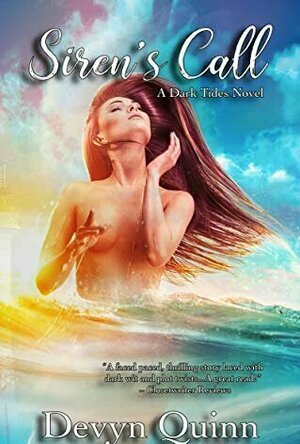
Siren's Call (Dark Tides #1)
Book
Between desire and love there are some things that can’t stay buried, even in the deep of the...
Haley Mathiot (9 KP) rated Lips Touch: Three Times in Books
Apr 27, 2018
Lips Touch: Three Times by Laini Taylor
Genre: Young Adult, paranormal/fantasy, romance
ISBN: 9780545055857
Published: October 1st 2009 by Arthur A. Levine Books
Rating: 5
Three stories. Three kisses, all with horrible—or wonderful?—consequences. Goblins hunt girls who long for what they don't have. The most beautiful voice can't be heard, even by a lover, or all who hear it will die. A young girl has been thrown into something she never chose, for a reason she doesn't know, with memories that aren't her own. Welcome to paranormal love.
These stories were fantastic. There were three things that stuck out about them:
1. None of them had happyland syndrome (description of Happyland Syndrome here: http://haleymathiot.blogspot.com/2010/06/unique-phrases-call-for-definitions.html) endings where everything wraps up perfectly. In fact only one of them ends at the end of the story: the others solve the main conflict and wrap up nicely. Taylor didn't have to write all the way to the end because I knew what was going to happen and was satisfied exploring the rest in my mind.
2. They pulled me into the story with the first sentence. There was no "I'm going to give this a try and maybe it'll be worth reading." No, it was enchanting and enticing from the first word, and it was because of the creativity in the prose and the language.
3. Great writing. Beautiful intricate descriptions that stuck with me and gave me the feelings Taylor wanted me to have—whether they be enticing and sensual, or terrifying and upsetting.
Here are my thoughts on the individual short stories:
Goblin Fruit
Really?… Wow… why was that so good even though it had a horrible ending?… and was it really that horrible? Yes, it really was. I had to double check and make sure that it really was the end! I'd been wondering for a while 'can an author write a good book with a good ending that isn't happy?' answer, Yes. Laini Taylor can.
Spicy Little Curses Such As These
This story was horrid and sweet at the same time. I had a thought of how the story would end, but the ending turned out to be much different. It wasn't perfect, but it was perfect enough to leave me smiling and feeling satisfied for the characters.
The Hatchling
I could not visualize how this story would have a happy ending, and it certainly wasn't perfect—there is one character whom I still fear for her sanity. But I was so amazed an the unwinding of the mysteries and secrets of the plot and was more pleased than I thought I would be with the conclusion.
For wonderful writing, creativity, and fantastic characters, I give this one five stars and two thumbs up—get it, first chance you can.
Content/recommendation: Ages 15+ for some language, little sensuality. No explicit violence or language, no sex.
This review is copyright Haley Mathiot and Night Owl Reviews 2010. Original Review: http://haleymathiot.blogspot.com/2010/10/review-lips-touch-three-times.html
Genre: Young Adult, paranormal/fantasy, romance
ISBN: 9780545055857
Published: October 1st 2009 by Arthur A. Levine Books
Rating: 5
Three stories. Three kisses, all with horrible—or wonderful?—consequences. Goblins hunt girls who long for what they don't have. The most beautiful voice can't be heard, even by a lover, or all who hear it will die. A young girl has been thrown into something she never chose, for a reason she doesn't know, with memories that aren't her own. Welcome to paranormal love.
These stories were fantastic. There were three things that stuck out about them:
1. None of them had happyland syndrome (description of Happyland Syndrome here: http://haleymathiot.blogspot.com/2010/06/unique-phrases-call-for-definitions.html) endings where everything wraps up perfectly. In fact only one of them ends at the end of the story: the others solve the main conflict and wrap up nicely. Taylor didn't have to write all the way to the end because I knew what was going to happen and was satisfied exploring the rest in my mind.
2. They pulled me into the story with the first sentence. There was no "I'm going to give this a try and maybe it'll be worth reading." No, it was enchanting and enticing from the first word, and it was because of the creativity in the prose and the language.
3. Great writing. Beautiful intricate descriptions that stuck with me and gave me the feelings Taylor wanted me to have—whether they be enticing and sensual, or terrifying and upsetting.
Here are my thoughts on the individual short stories:
Goblin Fruit
Really?… Wow… why was that so good even though it had a horrible ending?… and was it really that horrible? Yes, it really was. I had to double check and make sure that it really was the end! I'd been wondering for a while 'can an author write a good book with a good ending that isn't happy?' answer, Yes. Laini Taylor can.
Spicy Little Curses Such As These
This story was horrid and sweet at the same time. I had a thought of how the story would end, but the ending turned out to be much different. It wasn't perfect, but it was perfect enough to leave me smiling and feeling satisfied for the characters.
The Hatchling
I could not visualize how this story would have a happy ending, and it certainly wasn't perfect—there is one character whom I still fear for her sanity. But I was so amazed an the unwinding of the mysteries and secrets of the plot and was more pleased than I thought I would be with the conclusion.
For wonderful writing, creativity, and fantastic characters, I give this one five stars and two thumbs up—get it, first chance you can.
Content/recommendation: Ages 15+ for some language, little sensuality. No explicit violence or language, no sex.
This review is copyright Haley Mathiot and Night Owl Reviews 2010. Original Review: http://haleymathiot.blogspot.com/2010/10/review-lips-touch-three-times.html

The Halloween Oracle
Lifestyle and Reference
App
Harness the eerie power of Halloween every night of year with this stunning, accurate Oracle deck. ...
